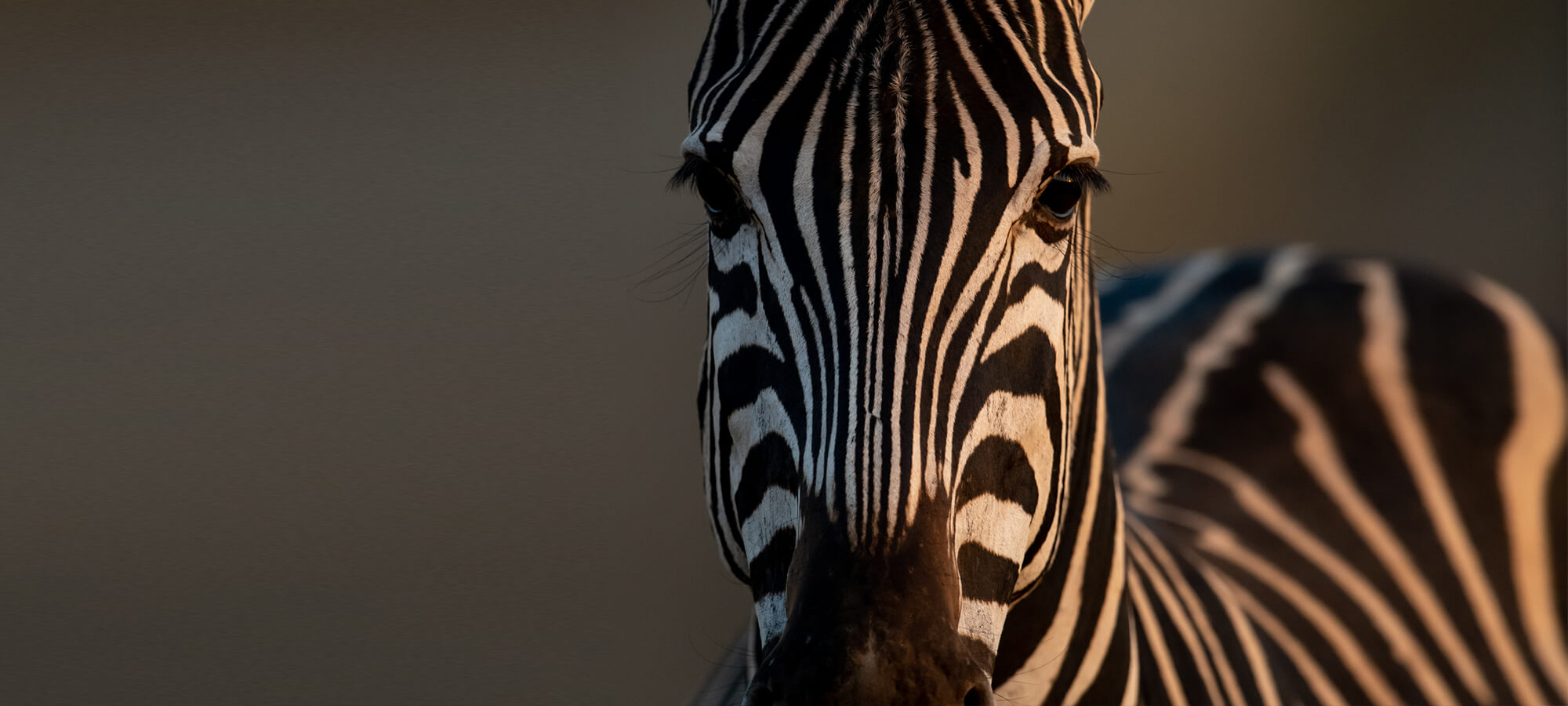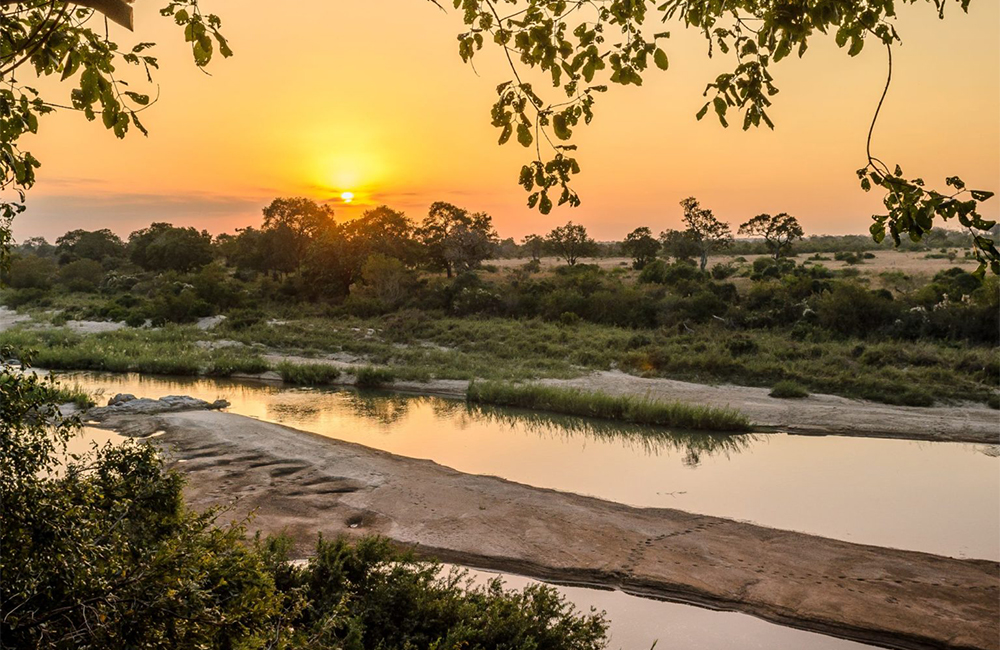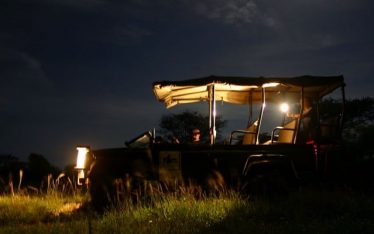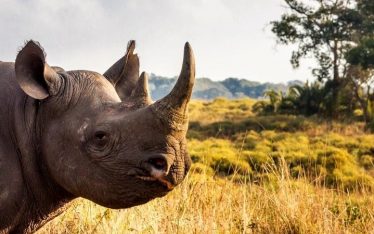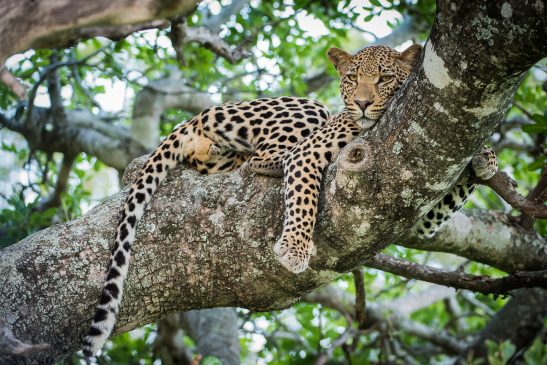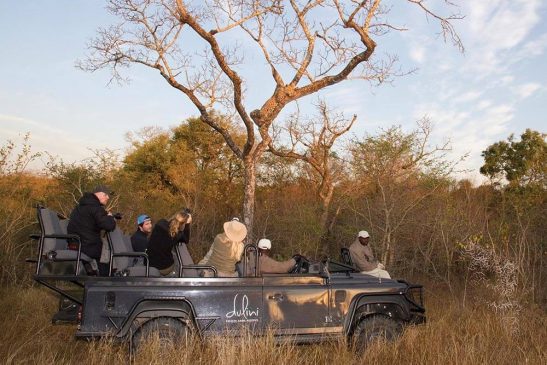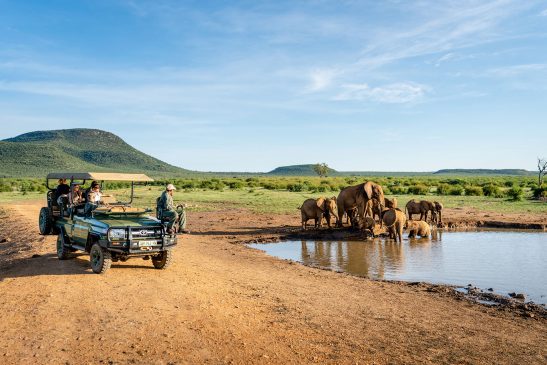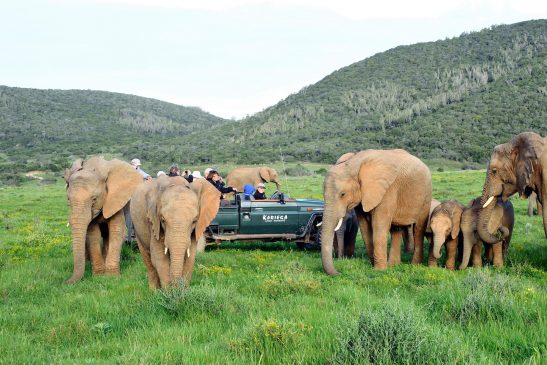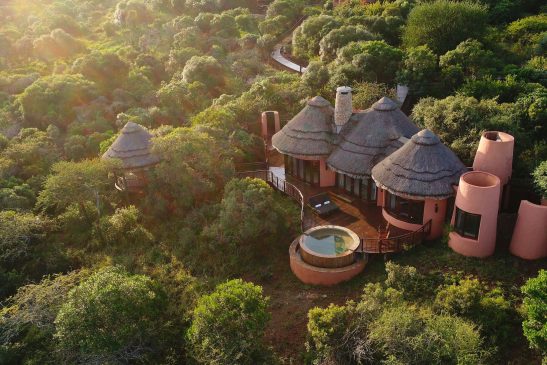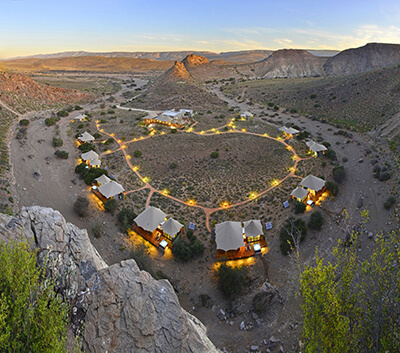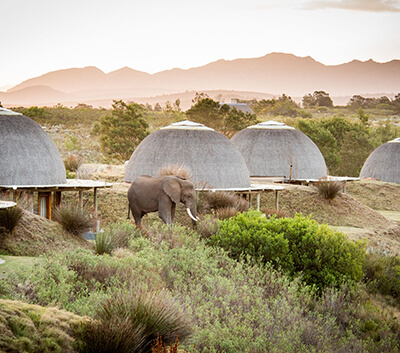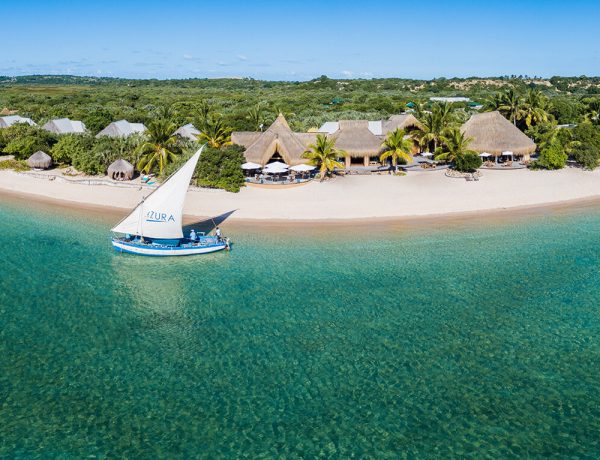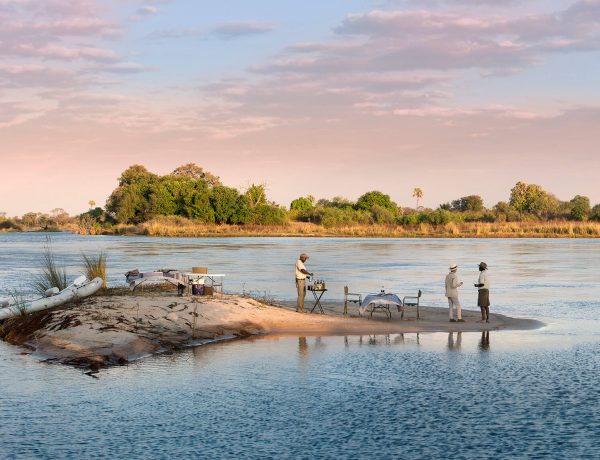One thing that makes the Kruger National Park a fantastic safari destination is that there really is not a bad time to go. The Kruger National Park has two main seasons, a dry season and a wet season. The wet and dry seasons each feature unique landscapes and viewing opportunities, so one might say that the best time to go on safari in the Kruger National Park may depend on what you want to see.
Kruger National Park Dry Season
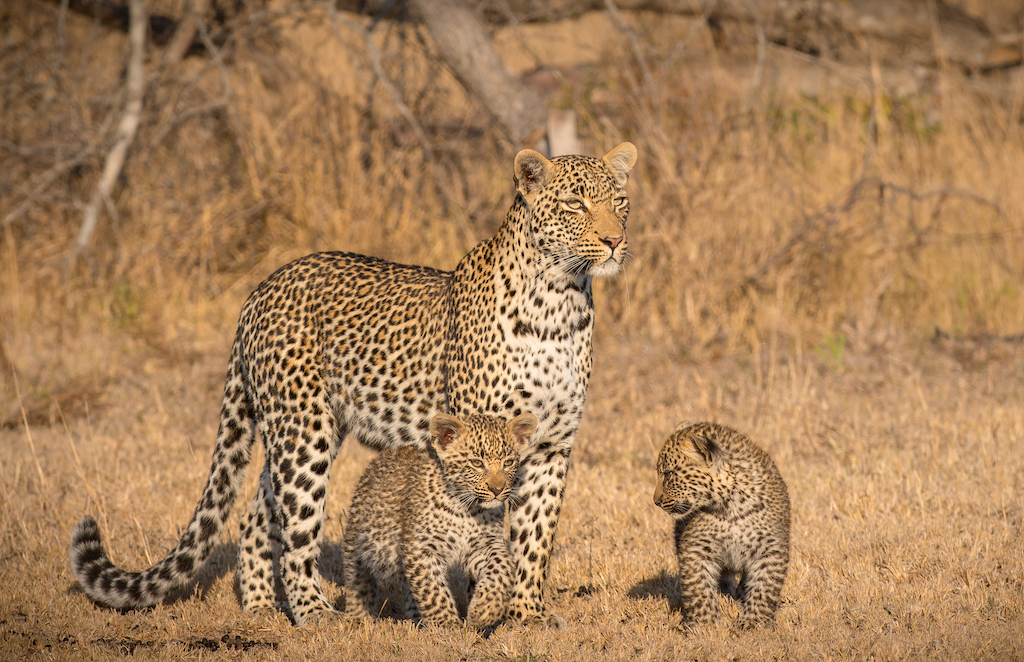
It is no secret that the dry winter months from May to October have been dubbed as the best time to go on safari in the Kruger National Park. Vegetation is sparse and animals have to gather at permanent water sources for a drink making them easier to spot. There is also virtually no rainfall during this time. Winter temperatures drop below 10˚C (50˚F) in the early mornings and evenings, however, the days warm up and temperatures increase to 24˚C (75˚F) by the afternoons.
Kruger National Park Wet Season
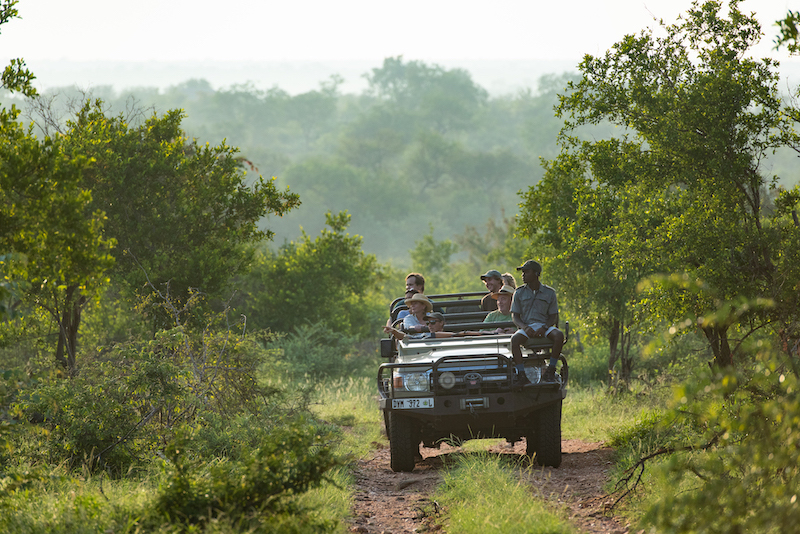
Make no mistake, visiting the Kruger National Park in wet season is a beautiful time to go too, many prefer the lush green vegetation. Although it’s wet season in the Kruger, it is also summer. Peak summer temperatures, from December to February, are well into the thirties and can reach up to a scorching 40˚C (104˚F). This is however the wet season and afternoon thunderstorms bring a slight relief from the heat.
January in the Kruger National Park
January is also the peak of the rainy season, so visitors should be prepared for occasional thunderstorms and heavy downpours. January is one of the warmest months of the year in the park. While the summer heat can make for uncomfortable conditions, it also means that the park’s vegetation is lush and green, and many animals are more active during the early morning and late afternoon when temperatures are cooler. This is when the game drives take place. Despite the heat and humidity, January is a great time to visit the Kruger National Park for those who want to experience the park’s wildlife and natural beauty at its best.
Weather: Average daily temperature from 20°C – 33°C and high humidity. Expect occasional thunderstorms and short, but heavy downpours throughout the day.
Tip: Be sure to pack light, breathable clothing and plenty of sunscreen to protect yourself from the sun. Afternoon thunderstorms are common, so it’s a good idea to bring a raincoat or umbrella.
February in the Kruger National Park
February is considered to be one of the warmest and wettest months in Kruger National Park. The humidity is also high, making it feel hotter than it actually is. February can be a great time to visit Kruger National Park for those who don’t mind the heat and rain. You can expect frequent thunderstorms and heavy rainfalls during this month, which can sometimes lead to flash floods. However, the rain also brings new life to the park, and the vegetation is lush and green, making it a scenic experience with beautiful lush landscapes.
Weather: Average daily temperature from 20°C – 32°C and high humidity. Expect occasional thunderstorms and short, but heavy downpours throughout the day.
Tip: Be sure to pack light, breathable clothing and plenty of sunscreen to protect yourself from the sun. Afternoon thunderstorms are common, so it’s a good idea to bring a raincoat or umbrella.
March in the Kruger National Park
March is the end of the rainy season and also the last month of Summer. The temperatures are warm and humid, and you can expect afternoon thundershowers. The Kruger’s scenery is magnificent in March. The vegetation is thick, green and lush making the landscapes really beautiful. With the thick vegetation it can be more difficult to spot the wildlife. The rivers are full and there is an abundance of water around the park, therefore fewer animals congregate around the water holes. Staying in the private reserves will be an advantage, because the vehicles are allowed off road on the game drives to track the wildlife. With the summer rain and humidity levels, March is in high season for mosquitoes.
Weather: Average daily temperature from 20°C – 31°C and high humidity. Expect occasional thunderstorms and short, but heavy downpours throughout the day.
Tip: Be sure to pack light, breathable clothing and plenty of sunscreen to protect yourself from the sun. Afternoon thunderstorms are common, so it’s a good idea to bring a raincoat or umbrella.
April in the Kruger National Park
April is the beginning of autumn in Kruger National Park and the weather is generally warm and pleasant. The temperatures are cooler than in the hot summer months, making it more comfortable for visitors to explore the park. Considering April is the end of the rainy season, it is a great a great time to visit the Kruger National Park. Although it is the end of rainy season, you can expect occasional thundershowers in the afternoon. The vegetation is still green and lush, and the rivers and waterholes are full. With the thick vegetation it can be more difficult to spot the wildlife. Staying in the private reserves will be an advantage, because the vehicles are allowed off road on the game drives to track the wildlife.
Weather: Average daily temperature from 17°C – 29°C and high humidity. Expect occasional thunderstorms and short, but heavy downpours throughout the day.
Tip: Changing of the seasons invites an unpredictable weather pattern. It’s always a good idea to pack warm clothing for the cooler mornings and evenings.
May in the Kruger National Park
The Month of May marks the start of dry season in the Kruger National Park and is an excellent time to visit. The day time tempretures in May are still warm, while the evenings start to cool. The weather makes it a very comforatble time of year to visit. May is the end of the rainy season in the the Kruger National Park and the vegetation is lush and green. The thinning vegetation helps in spotting wildlife and May is considered an excellent time to see animals on safari in the Kruger National Park.
May is an ideal time to go to the Kruger National park due to its pleasant temperatures and favourable weather conditions. It is also a quiter time of year to visit before the June/ July school holidays.
Weather: Average daily temperature from 12°C – 28°C and high humidity. Expect occasional thunderstorms and short, but heavy downpours throughout the day.
Tip: Early mornings and evenings can be quite chilly and this is when the game drives take place. Temperatures can drop to around 10°C or lower, so make sure to bring some warm layers for these times.
June in the Kruger National Park
June is a good time to go to the Kruger National Park, but you can expect cooler temperatures. The days are mild, but the evenings and morning can get cold. Although the days are mild, June is the coldest month in the Kruger National Park. June is very much dry season and it is an excellent time to spot wildlife in the Kruger national Park. The vegetation is thinner than in the summer months, which is an advantage when tracking the wildlife. The lack of rainfall in June creates good wildlife spotting oppertunites at the waterholdes. June is a popular time for school holidays, so the park may be busier than usual. Especially at the family friendly lodges.
In June the best game drives take place near the rivers and water sources which are plentiful in the Southern region of the Kruger National Park.
Weather: Average daily temperatures from 09°C – 25°C and high humidity. Expect occasional thunderstorms and short, but heavy downpours throughout the day.
Tip: Early mornings and evenings can be quite chilly and this is when the game drives take place. Temperatures can drop to around 10°C or lower, so make sure to bring some warm layers for these times.
July in the Kruger National Park
July is not much warmer than June and has smiliar tempretures and weather conditions. July is an excellent time to go on safari in the Kruger National Park. It is the middle of the dry season, which means that animals tend to congregate around water sources, making them easier to spot. Additionally, the vegetation is less dense, which also makes it easier to see wildlife. However, be prepared for cold mornings and evenings, as temperatures can drop significantly during this time of year. Game drives take place in teh mornings and afternoons, so you will need to dress warm and be prepared. June is a popular time to visit the Kruger National Park, so be sure to book accommodations and activities in advance.
Weather: Average daily temperatures from 09°C – 25°C and high humidity. Expect occasional thunderstorms and short, but heavy downpours throughout the day.
Tip: Early mornings and evenings can be quite chilly and this is when the game drives take place. Temperatures can drop to around 10°C or lower, so make sure to bring some warm layers for these times.
August in the Kruger National Park
August is in the peak of dry season in the Kruger National Park, which is considered the best time to go. Although August is an excellent time to go on safari in the Kruger National Park, it is also the busiest and it is essential to book your accommodation far in advance. The weather is usually dry, warm and sunny. Temperatures can be chilly in the mornings and evenings, so it’s important to bring warm clothing. With the low humidity in August and cooler temperatures in the evenings, this is consider low season for mosquitoes.
There is little to no rain in August and it is a very dry time in the Kruger. The vegetation is spare and collarless and it is an excellent time to spot wildlife as they gather around water sources.
Weather: Average daily temperatures from 11°C – 27°C and high humidity. Expect occasional thunderstorms and short, but heavy downpours throughout the day.
Tip: Early mornings and evenings can be quite chilly and this is when the game drives take place. Temperatures can drop to around 10°C or lower, so make sure to bring some warm layers for these times.
September in the Kruger National Park
September is amazing in the Kruger National Park and an excellent time to visit. September in the Kruger national park falls in the dry season, which is considered the best time to go to the Kruger National Park for a safari. There is little to no rain in this month and vegetation is sparse and colorless, wildlife sightings are frequent, as animals congregate around water sources. September is considered one of the best times to spot the famous Big-5 as well as other incredible wildlife.Temperatures are also warmer in September, making it a comfortable time to explore the park.
September is a busy month in the Kruger National park and it is difficult to find accommodation over this period, unless you book far in advance. It is known to be a little quieter than July and August which are considered to be the height of peak season.
Weather: Average daily temperatures from 14°C – 29°C and high humidity. Expect occasional thunderstorms and short, but heavy downpours throughout the day.
Tip: Changing of the seasons invites an unpredictable weather pattern. It’s always a good idea to pack warm clothing for the cooler mornings and evenings.
Kruger National Park in October
October is another excellent time to visit Kruger National Park and is also considered the best time to go by many experienced safari enthusiasts. With Summer approaching the days start to warm up. This gives you the opportunity to enjoy many outdoor activities as well as lounge in the sun when you are taking some time out to relax at the lodge. October is not as busy as the peak of the dry season and it’s easier to find availability at the best safari lodges. October in the Kruger National Park is the start of shoulder season and is also the start of birthing season, so you may be lucky enough to see many animals with their young. The heavy rains have not yet started in October, which means that water sources are still scarce and wildlife tends to gather around them. This is an excellent time to see a wide variety of animals.
Another benefit of visiting Kruger National Park in October is the abundance of birdlife. As the summer season approaches, many migratory birds arrive in the park, adding to the already impressive number of resident species. Birdwatchers will have a field day spotting everything from eagles and vultures to colorful bee-eaters and kingfishers.
Weather: Average daily temperatures from 17°C – 30°C and high humidity. Expect occasional thunderstorms and short, but heavy downpours throughout the day.
Tip: Generally a dry month, although there may be occasional light rain showers in the afternoon. It’s always a good idea to pack warm clothing for the cooler mornings and evenings.
Kruger National Park in November
November is a great time to visit Kruger National Park in South Africa. During November, the weather is generally warm and dry in the Kruger National Park, which means that game viewing can be excellent. The vegetation is also less dense, making it easier to spot wildlife. However, it is important to note that November falls within the park’s rainy season, which means that there may be occasional thunderstorms.
Weather: Average daily temperatures from 19°C – 31°C and high humidity. Expect occasional thunderstorms and short, but heavy downpours throughout the day.
Tip: Be sure to pack light, breathable clothing and plenty of sunscreen to protect yourself from the sun. Afternoon thunderstorms are common, so it’s a good idea to bring a raincoat or umbrella
Visiting Kruger National Park in December
The Kruger National Park in December is very hot and also the wettest time of the year. Given that December is holiday month it is a very busy time of year to visit and the most expensive. The weather in the Kurger National Park in December is hot and humid and you can expect temperatures over 30 degrees Celsius with afternoon thundershowers.
Visiting the Greater Kruger during the hot summer months will provide you with incredible green landscapes, while winters are dry with cloudless sunny days and provide easy animal spotting due to sparse vegetation. If you get the opportunity to plan your trip to the Kruger, regardless of the season, take it! A visit to the Kruger any time of year promises to be a great African wildlife safari.
Weather: Average daily temperatures from 20°C – 26°C and high humidity. Expect occasional thunderstorms and short, but heavy downpours throughout the day.
Tip: Be sure to pack light, breathable clothing and plenty of sunscreen to protect yourself from the sun. Afternoon thunderstorms are common, so it’s a good idea to bring a raincoat or umbrella
Visiting the Kruger in Shoulder Season
There is however one specific time of year we find particularly intriguing to visit the Kruger, and that is the shoulder season between mid-winter and summer.
September and October can get very humid in anticipation of the arrival of summer rains. As the first rains of the season start to fall a magical season unfolds, making it a very special time to visit, and in our opinion, the best time to go on safari in the Kruger National Park.
Here are the top 9 reasons to visit the Kruger from September through to November:
- As the rains fall, dry landscapes start to transform into lush surrounds. New greenery emerges but the vegetation is still fairly sparse compared to the end of the rainy season, making it unobtrusive to spotting wildlife.
- Early rains of the season clear the skies of dry winter dust. The air is clear and fresh.
- Although rains may start to fall more frequently, the downpours are generally in the afternoons and clear up quickly, so your game drives are rarely affected by the rain.
- This time of year is the season for new-borns. Just after the first seasonal rains impala lambs are born all within a two to three-week period. You will witness loads of baby antelope, elephant, monkeys, and warthogs. Get your camera ready!
- Lots of new-born animals mean lots of easy prey for predators. This is therefore also a good time to see predators in action.
- Migratory birds make their way back to the Kruger during spring resulting in a fantastic time for birding enthusiasts to start ticking off species on their bird watching list.
- Morning and evening temperatures during this time are not too cold.
- Private game reserves limit the number of vehicles accessing the conservation area to prevent crowding and provide an exclusive experience no matter the season. Peak summer season is however still busier than other times of the year and visiting between September and November allows you to miss that busy period.
- Experience electric thunderstorms in the evenings, a magnificent display of lightning in the skies. Thunder clouds with rays of sunlight streaming through can make for incredible photographic backdrops. Rainbows also make their charming appearance amidst the stormy skies.
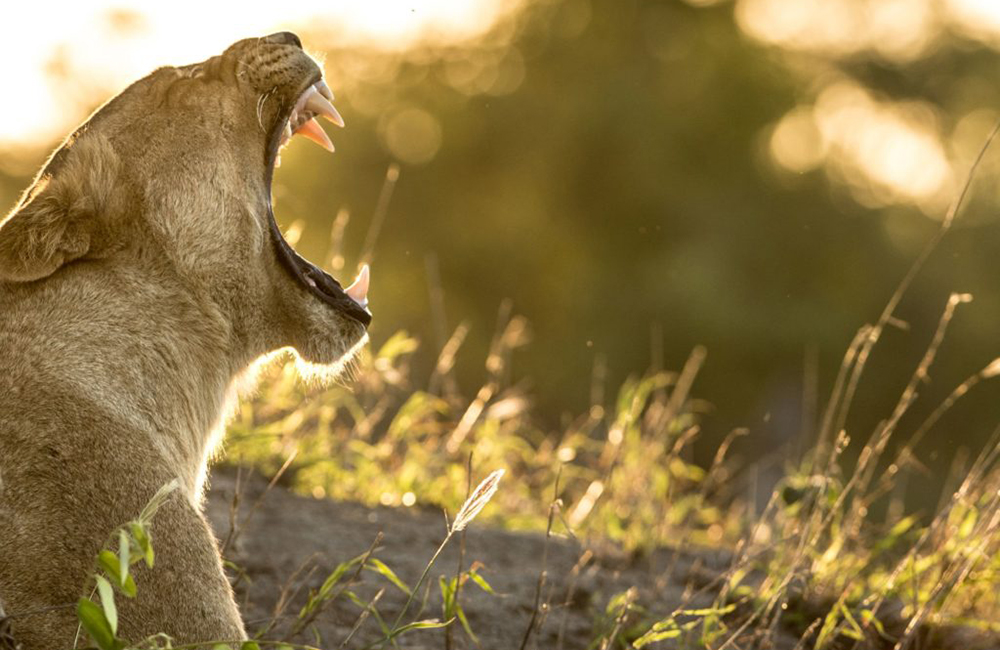
Planning information
If you are planning a safari in the Kruger, we recommend reading these articles to find out where to stay.
For personal planning assistance and advice contact out team.
